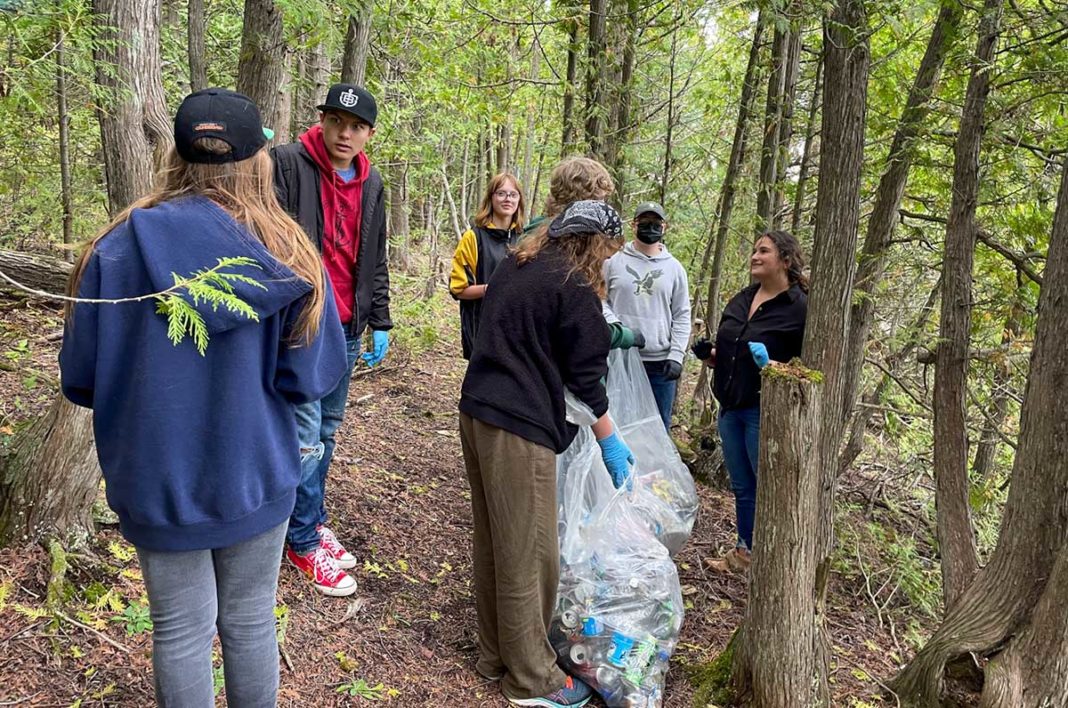MSS Share/Go Green presents… A Manitoulin Eco-Hero
by Anika Smith and Daphne Carr
Pollution is a broad and very relevant topic because it affects the whole planet, including Manitoulin Island. We may have a very green environment compared to other places but that doesn’t mean we are invulnerable to the impact of various types of pollution: air, light, land and water.
Air pollution is caused by excessive amounts of greenhouse gases being released into the air due to human activity. You may notice in bigger cities/towns the air quality isn’t as great as the air we breathe here. People who constantly breathe polluted air are at higher risk of getting lung diseases such as bronchitis and lung cancer. Polluted air also threatens nearby ecosystems, where the fragile shifting balance could result in a major loss of wildlife. Carbon and other greenhouse gases also act as a blanket to Earth. This is contributing to our Earth’s warming at an alarming rate. To help keep the Earth as we know it, avoid contributing to air pollution by walking, biking, or carpooling, if able.
Light pollution is more common in urban centres, but it still affects us here. Light pollution heavily messes with migration patterns and algae blooms, among other things. Artificial lights can throw migratory birds and insects off route and even blind them. Light pollution is one of the many things responsible for the fast-dropping monarch and some songbird populations. Non-migratory animals are also impacted. Artificial light can make habitats unlivable for animals like bats who use darkness to cloak themselves from predators, or it will attract animals like moths to unsafe spaces. This leads to an unbalanced ecosystem.
Land pollution is also detrimental. Landfills are a great way to keep trash in a concentrated place, but it is still pollution. Plastic takes at least 450 years to decompose, while still harming the surrounding habitat. It displaces many animals and plants. Reducing your personal garbage will bring us a step closer to conserving habitats. Land pollution also leaches into water systems.
Water pollution is an overwhelming concern: oil spills, water runoff from farms, sewage, factories by water, and the estimated 363,762,732,605 pounds of garbage in the ocean as of 2021. The ocean is this world’s lungs, and without it, we wouldn’t be here. Fifty to eighty percent of our air comes from ocean-dwelling creatures, and it also regulates global temperatures. The ocean may be far away, but there are many local waters to protect around us. Forty percent of people do not have access to clean water, Canada has a fifth of the world’s fresh water, yet roughly 758 communities have had boil water advisories. Many are due to careless human actions that poison the water. Addressing water pollution needs to be a priority.
We hope this article has opened your eyes to pollution and its effects on our lives. We are very privileged to live in such an environment without suffocating pollution due to urbanization. However, this means we all need to take action to protect this oasis.



